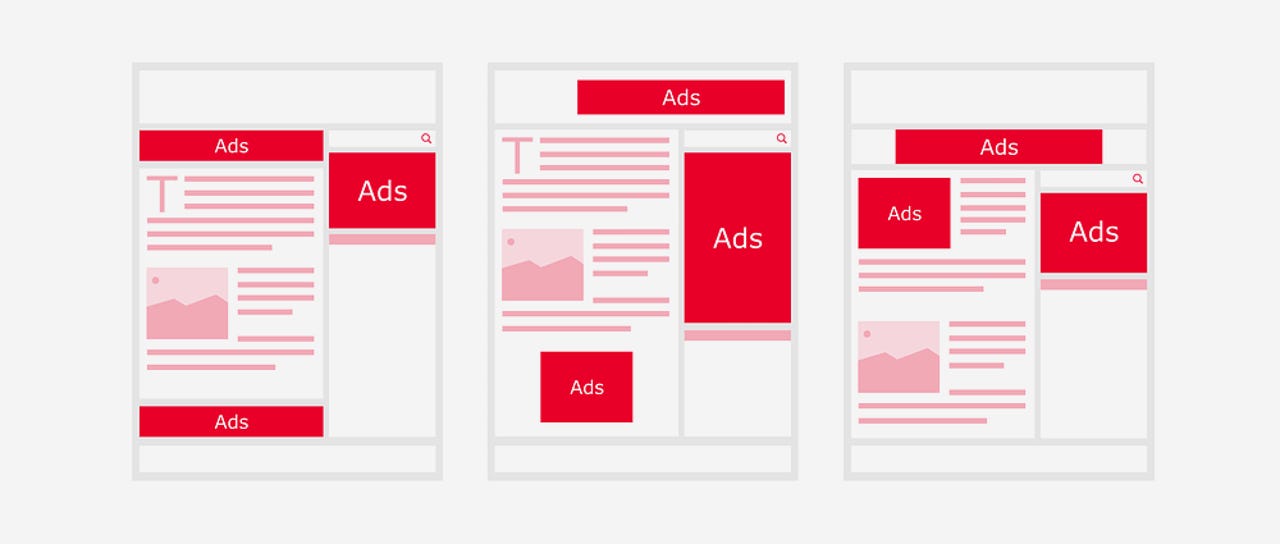New research shows personalized ads are just barely more efficient than dumb ads


New academic research presented at a security workshop in Boston on Monday showed that targeted ads (which rely on tracking users) are just only 4% more useful in bringing revenue for publishers than contextual ads (which don't rely on user tracking).
This new paper puts in question a myth that online advertisers have been pushing for more than a decade -- that ads shown based on users' past browsing history and preferences will yield more profit for companies buying online ads, as users will tend to click on the ads more, if they're relevant.
Only a 4% increase in revenue
In reality, the research team said that after they've reviewed millions of advertising transactions completed across multiple websites owned by a large media company, they've seen only a small increase in profits for the ad publishers.
"Our analysis finds that [...] when the user's cookie is available publisher's revenue increases by about 4%," researchers wrote in a paper presented at the 2019 Workshop on the Economics of Information Security.
"The increase is significant from a statistical perspective. Nevertheless, from an economic perspective, the increase corresponds to an average increment of just $ 0.00008 [in revenue] per advertisement."
For the uninitiated in advertising lingo, contextual ads are online adverts that are shown on websites based on the "context" of the page they are displayed. For example, a contextual ad on a web page showing women's dresses will show ads for related women's fashion products.
On the other side of the aisle are targeted ads that show adverts for products based on the user's past browsing history and based on profiles compiled by online advertisers. These profiles are collected over weeks, months, or even years, and rely on incessantly tracking users' activities around the web, usually via cookies.
Are targeted ads really superior? Worth it?
With the publishing of this new research, privacy advocates argue that the practice of tracking users' movements online is useless, as it's not beneficial to ad publishers, nor is it useful for users.
"Consider a website with 500,000 sessions per day. Average number of page-views per session is 2 and average number of ads shown on each page is 4," researchers said, describing a hypothetical scenario.
"In total, the website shows (sells) an average of 4,000,000 ads per day. If the website had to decide to not set tracking cookies on the visitors, according to our estimate, it would forfeit about $320 in revenue per day, or almost $10,000 per month."
$10,000 per month is a lot for an online website, but taking into account that the site won't be subject to data protection legislation, as it will not be collecting any user information via tracking cookies, researchers argue that this is actually a win, as sites won't be risking huge fines from privacy watchdogs around the world.
Users interested in more fine-grained detailed can read the researchers white paper, entitled "Online Tracking and Publishers' Revenues:An Empirical Analysis," and authored by Veronica Marotta from the University of Minnesota, Vibhanshu Abhishek from the , University of California, Irvine, and Alessandro Acquisti from the Carnegie Mellon University.
Article updated on June 5 to correct wording and highlight that the research analyzed the revenue benefits for ad publishers (sites showing the ads), and not ad buyers (companies buying ad space).
The best VPN services: Our 10 favorite vendors for protecting your privacy
Related cybersecurity coverage:
- I2P network proposed as the next hiding spot for criminal operations
- Hollywood lie: Bank hacks take months, not seconds
- New attack creates ghost taps on modern Android smartphones
- Apple announces 'Sign in with Apple' feature
- New Iranian hacking tool leaked on Telegram
- Wave of SIM swapping attacks hit US cryptocurrency users
- How WannaCry is still launching 3,500 successful attacks per hour TechRepublic
- The best identity theft monitoring services for 2019 CNET